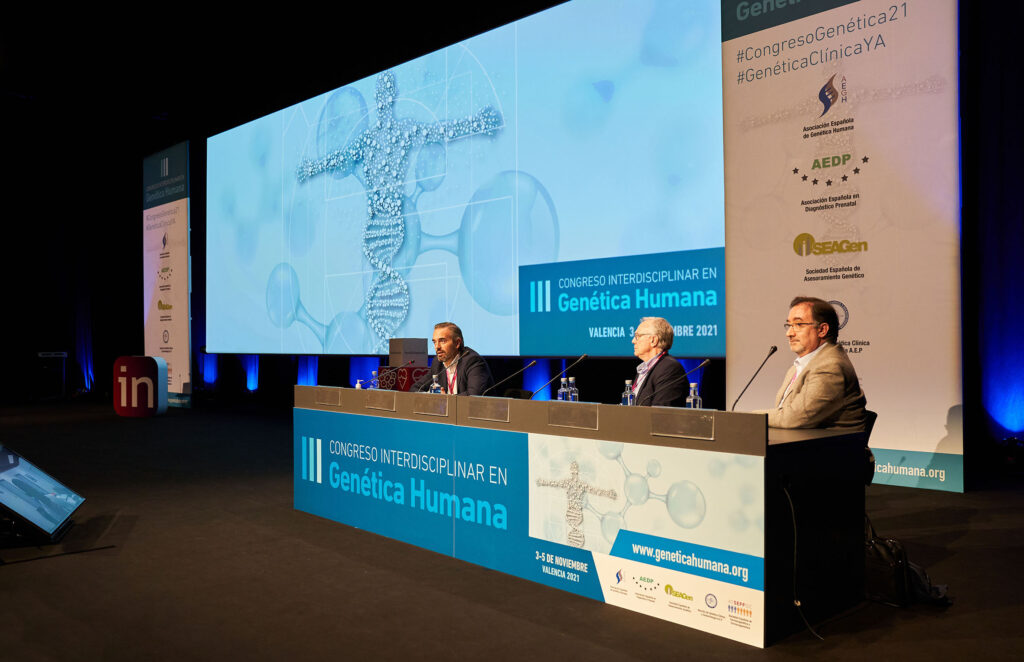- Knowing the genetic alterations in cancer allows implementing individualized preventive programs
- New technologies applied to genetics and their implementation in healthcare are essential in obtaining prognostic and predictive factors that can be used for selecting the best treatment for each patient

At the third edition of the Spanish Human Genetics Association (known under the Spanish acronym AEGH) Congress, Health in Code has brought together a group of experts to discuss current and future needs of genetics in healthcare in the genomic era.
Dr. José Cervera, Head of Genetics at the University and Polytechnic Hospital La Fe, ensures that genetics used in the study of human disease has experienced exponential growth in the last decade. The emergence of new technologies and next-generation sequencing (NGS) have made it possible to significantly deepen our understanding of the molecular mechanisms of the disease. “The increasing availability of these technologies and their progressive implementation in clinical laboratories is a gateway to a faster and more accurate diagnosis of many patients in whom something like this was simply unthinkable only a few years ago. And all of this translates into better healthcare for patients and their families. Moreover, these advances are also transversal and affect, to a greater or lesser extent, all medical disciplines”.
Dr. Cervera believes that genetic services should be the backbone of healthcare in this field. “As an essential element of the system, they allow to optimize and maximize the performance of the always limited resources available and avoid duplication of efforts. On the other hand, they create an appropriate environment to guarantee a complete and multidisciplinary training of professionals specialized in the various aspects of medical genetics. Ultimately, they ensure that health equity and the highest quality standards will be delivered to patients and their families”.
The geneticist, a critical piece in the treatment of hereditary diseases
For Dr. Eduardo Tizzano, Head of Clinical Genetics at the Vall d’Hebron University Hospital, the role of geneticists in multidisciplinary teams to treat inherited diseases is key. He argues that the three experts—the clinical geneticist, the genetic counselor and the laboratory geneticist—play a fundamental role by complementing and supporting each other in the interpretation of test results of certain patients. “The help of other specialists who are familiar with the pathologies studied in each case is also very important. We are facing a transversal approach with parity of leadership and collaboration, which makes the role of geneticists essential”.
Regarding the accessibility of genetic tests in Spain, there is a large public and private offer, but the pending issue is interpretation, communication to the patient and correct genetic counseling. “Perhaps I would say that in some cases there is overuse or incorrect indications, which in turn leads to a delay in the diagnosis or to a misinterpretation that harms the patient and their family”. Therefore, Dr. Tizzano reflects that we must be more cautious with the management of genetic information that is given to patients and their families. “Specialists must have geneticists as collaborators. Interpretation by a multidisciplinary working group as well as adequate genetic counseling are essential if we want to lay out the foundations of optimal and accessible healthcare genomics”.
The genetics of hereditary cancer is essential for population screenin
Dr. Pedro Pérez Segura, Head of Medical Oncology at the San Carlos Clinical Hospital, has been in charge of talking about genetics in oncology, specifically, about two very different aspects: on the one hand, everything that affects the area of hereditary cancer (identification of patients, types of studies, implications in prevention and therapy, etc.) and, on the other, the massive incorporation of genetic studies with the aim of obtaining better prognostic and predictive factors for choosing the best treatment for each patient.
According to Dr. Peréz, genetics can offer valuable insights for research and cancer treatment. As he claims, talking about oncology is impossible without talking about genetics. “Knowing what genetic alterations occur in the development of cancer and their evolution as a disease allow us to promote individualized preventive programs and, of course, personalized therapies adapted in real time to the changes that the tumor itself develops throughout its natural history”.
The most pressing challenge in this field is the ability to correlate in a more specific way the risk of cancer based on the mutations that these specialists detect in the studies. In order to do so, the new technologies used in genetics and their implementation in the healthcare field are fundamental. Thereby, the challenges of genetics in the healthcare field are, without a doubt, that all cancer patients have access to the molecular studies necessary to be able to make the best therapeutic decision at all times. “The existence of a national personalized medicine program would help a lot to achieve this goal”, says Dr. Peréz, who also deems necessary that additional human resources are required to meet this demand, “… and not only laboratory technicians but also bioinformaticians and biologists/geneticists who specialize in the interpretation of the results that these new technologies deliver”.
